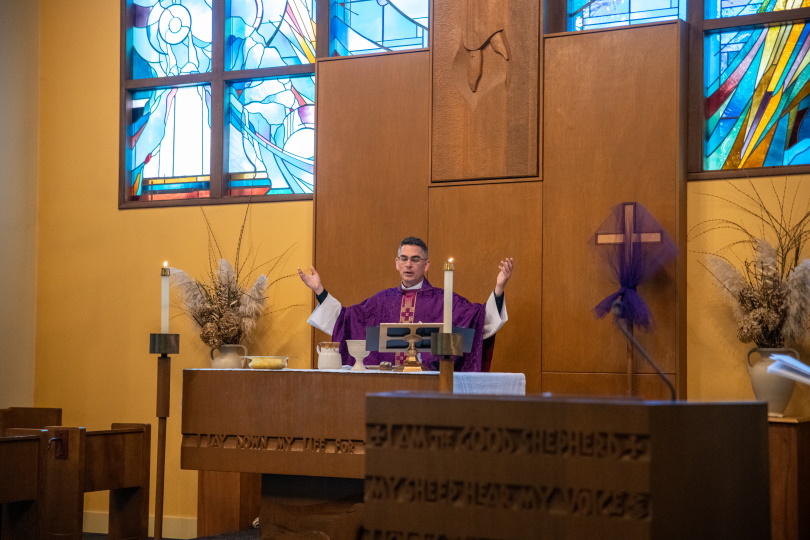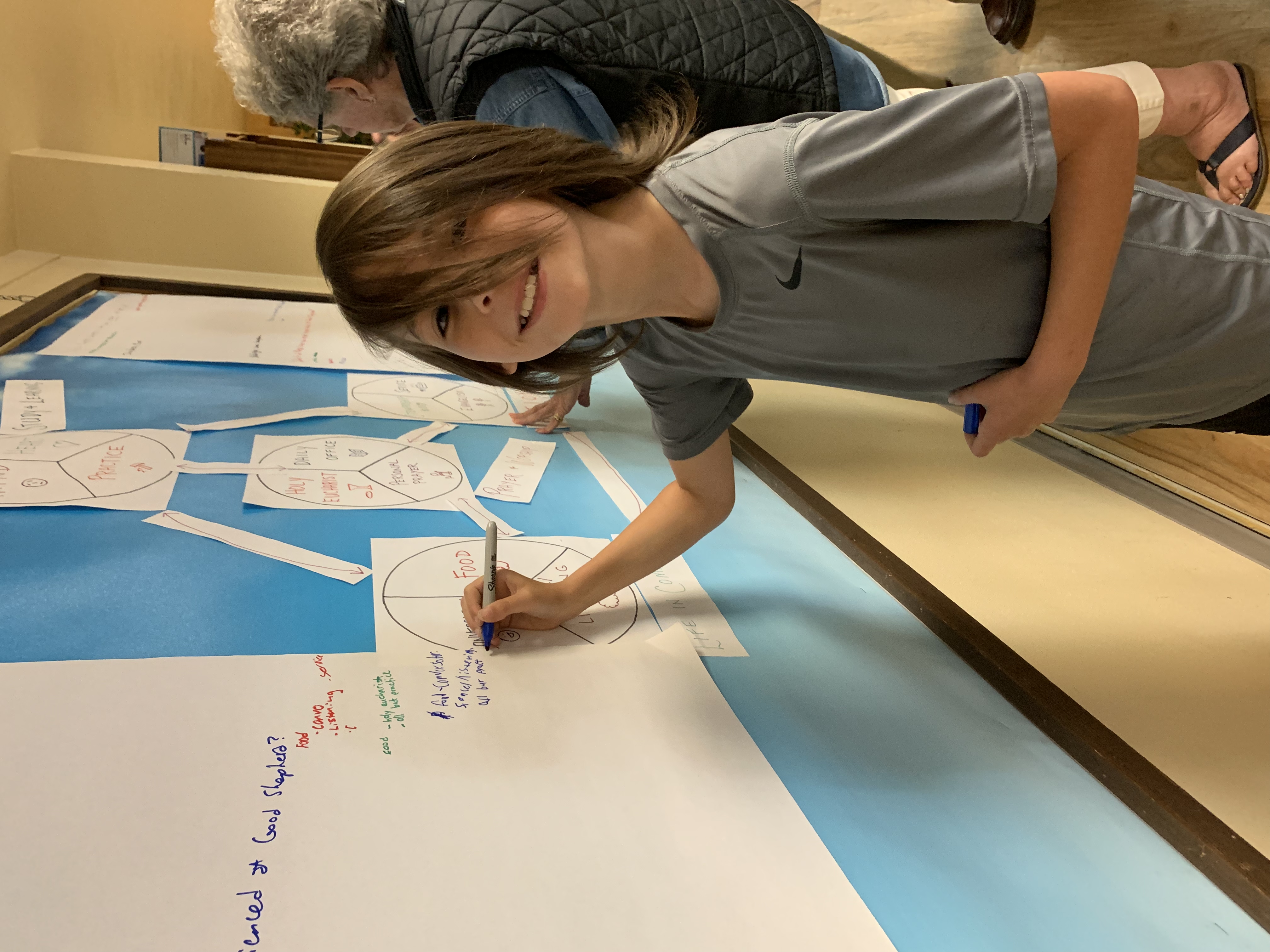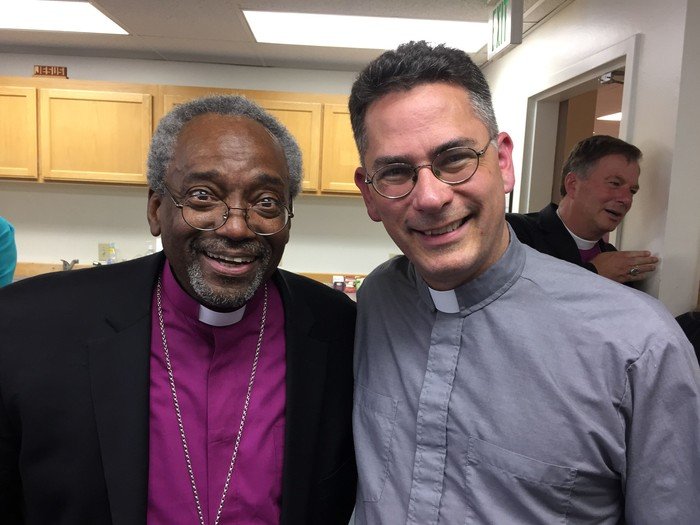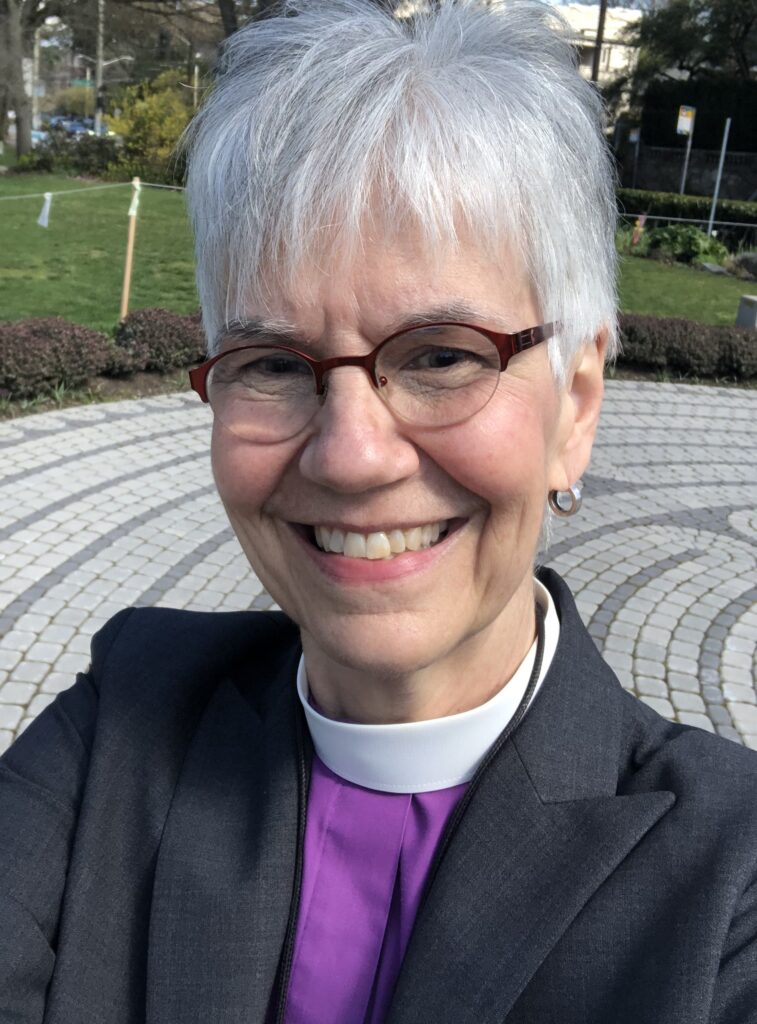

The mission of the Episcopal Church of the Good Shepherd is to know Christ and to make Christ's love known to others.
Episcopalians are …
... Christians: We are thankful for God’s creation and our place in it. We follow the teachings of Jesus of Nazareth and believe he was and is the Christ—God’s anointed Messiah. We pray for the Holy Spirit to guide us.
... Bible Readers: We wrestle with ancient texts and expect God to speak to us through them. We are not literalists; we value constant growth in understanding and context.
... Evolving Traditionalists: The structure of our worship has stood the test of time, but we don’t remain stuck in old assumptions that have become unhelpful or are just plain incorrect.
... Tellers of Stories: Our own lives intersect with God’s story, and sharing our stories with one another reveals the many ways this can happen.
... Students of Wisdom: We continue to learn all our lives how to walk in Jesus’ Way of Love. We continue to learn and share practices that help us apprentice ourselves to Jesus.
... Seekers of Justice: Through our love for God and one another, we welcome God’s ultimate dream of beloved community.

What Makes Good Shepherd Unique?
For over 60 years, Good Shepherd has been a neighborhood church for Federal Way. Our city, our society, and our churches have changed a lot in six decades. These days we find that Good Shepherd is uniquely positioned to become a home for lots of different people:
• People seeking community. We’re not a large congregation, but we’re not a dying congregation. It is possible to get to know everybody, but there’s also a lot going on here. While our broader culture values self-sufficiency above all else, we acknowledge that the Christian life, by its nature, is interdependent and relies on ever-deepening relationships, even with people who are quite different from us.
• Families with kids. Once upon a time, it seemed that parents wanted booming youth groups for their kids, bustling with opportunities they were too busy to take full advantage of. Coming out of the pandemic, we find that Gen-Z youth and young children thrive in places where everybody knows them by name—where the pace is friendly and not frantic.
• People of all ages. Christians share wisdom together across the generations. On a recent parish camping trip, one small discussion group contained people ages 8, 50, and 87—all asking thoughtful questions and learning about God together.
• LGBTQIA+ folks. The trauma Christians inflict on LGBTQIA+ people is horrific and unjustifiable. At Good Shepherd and in the wider Episcopal Church, no one is excluded from the church’s worship and sacraments on the basis of sexual orientation or gender identity, nor are these barriers to leadership roles. And yes, we come to this belief because we are Christians—not in spite of it.
• People who are “deconstructing.” We don’t believe that our church is the only “right” one, and that can make us a refuge for those who are seeking a new way of being Christian. Perhaps your previous church was abusive and hypocritical, or maybe it just isn’t the way you experience and understand God anymore. Even if your previous tradition gave you pain, we assume it also gave you gifts that can be shared here. You’ll find ample opportunities to tell your story if you wish … or simply to spend some time healing while you figure out your next steps.
• People who take the Bible too seriously to take it all literally. We value both academic and devotional approaches to Holy Scripture. We understand that myth is one of many genres found in the Bible, and that the Bible is a library of various perspectives—not a single book with a unified voice. The Bible is a primary tool for our faith, but we don’t worship a book. We worship God the Creator as revealed to us in a human being: Jesus of Nazareth.
• People of many different backgrounds and colors. We’re a fairly diverse group: majority white, yes, but among us you’ll find people from a variety of countries and with a variety of native languages. Historically, African Anglicans have especially found a home at Good Shepherd. We are committed to ongoing anti-racism work and learning multicultural competency.
• People seeking online worship options. Whether you’re immunocompromised or just live a long way off, you can always join our Sunday worship via Zoom, Facebook, or YouTube.
• People who have lots of questions … or who just want to help out. Finding your church community means finding a place where you are both sufficiently comforted and sufficiently challenged. This is how we are able to grow well. At Good Shepherd, there is no litmus test for belief. You are free to participate in the ways that make sense to you, and the community is here to help you deepen your spiritual life.


The Diocese of Olympia
The Episcopal Church is organized into regional groups called dioceses, each of which is headed by a bishop. The Diocese of Olympia covers all of Western Washington; our Bishop Provisional is the Most Rev. Melissa Skelton.
We are a democratic church: both ordinary churchgoers and clergy of all kinds gather every three years at our General Convention to make decisions that affect the whole Episcopal Church. The highest-ranking leader in the Episcopal Church is our presiding bishop, the Most Rev. Michael Curry. You may have heard him preach at a royal wedding!

